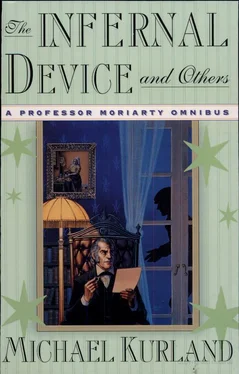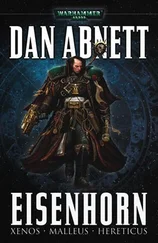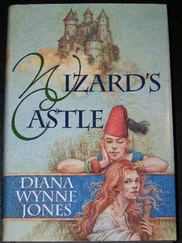As Lord East paused for breath, the man standing to Barnett's right, a gentleman named Higgins who was a correspondent for the Pall Mall Gazette, leaned toward Barnett and whispered, "He stole it all, you know."
"Stole it?" Barnett whispered.
"Exactly. Oh, there are other words. One item was 'sequestered,' another was 'confiscated,' columns and friezes were 'salvaged' from where they'd stood for twenty centuries. The Indian treasure was not purchased with Lord East's personal fortune, the Indian treasure is Lord East's personal fortune. He's not giving it to the Crown, you know, only loaning it."
Barnett nodded. "I'm not surprised," he whispered. "They say history is written on the backs of the losers."
Higgins stared at him. "I don't think that's exactly what they say," he said, "but I suppose it's close enough for a wire service."
"It must make you nervous, Lord East," one of the reporters suggested.
"Very little makes me nervous, young man," Lord East said. "To what were you referring?"
"Safeguarding all that treasure," the reporter said. "Seeing it safely back to England. Taking it overland to London."
Lord East leaned back with his arms on his hips, and managed to look exceedingly smug. "One of the guiding principles of my vice-royship, and before that of my tenure as resident director of the Northeastern and Southern Indian Railway, was that a well-armed militia is more than a match for any group of brigands. Another is that rigorous planning and preparation before the battle pay for themselves many times over when the battle begins. No, young man, I am not nervous. I am confident."
"Beg your pardon, my lord, but isn't there some native Indian secret organization that has threatened to recover the Lord East treasure and return it to the Indian people?" Higgins called out.
"I have received threats from such a group," Lord East admitted. "But I do not take them seriously. Hàtshikha nà Tivviha, they call themselves. It means 'the Seven Without Faces.' "
"Romantic," one of the reporters commented.
"Barbaric," Lord East said.
"Have they made any attempts on the treasure yet?" Higgins asked.
Lord East snorted. "They wouldn't dare do anything," he said. "Talk is cheap. Letters pinned to my pillow in an attempt to frighten me do not achieve their desired effect. But I doubt whether they have actually gone any further than that."
"Then I take it that you are not worried about this Indian group, your lordship," Barnett said.
"Not at all. I am more concerned about common thieves. The Lord East Collection would make a tempting target."
"But Lord East," Higgins said, "how far could a thief, or even a group of thieves, get with a ten-foot statue, or a twenty-five-foot column?"
"Quite true," Lord East agreed. "But the smaller pieces are vulnerable. The Rod of Pataliputra, twenty-two inches long, crusted with diamonds and rubies, said to be the symbol of authority given by Alexander the Great to Chandra Gupta, known to the Greeks as Sandrocottus, King of the Prasii. The Káthiáwár Buddha, carved out of one single piece of red carnelian, fifteen and one-quarter inches high. The dagger of Allad-ud-din Khalji, a gift to him from Malik Kafúr, who is believed to have had a precious stone set into its hilt or sheath for every Hindu priest he murdered. It contains over six hundred gems. I have over two thousand such items, small, highly portable, of great historical interest, and valuable out of all relation to their size."
"Can you describe the safeguards you have taken, your lordship?" Higgins called.
Barnett nodded agreement. "Yes, please do. That is the sort of detail that will fascinate our American readers."
"Unless you are afraid that a published description of your security measures will attract the very brigands you seek to avoid," von Hertzog suggested, tamping the tobacco down in an oversized pipe he had produced from an inner pocket.
Lord East glared at the German. "My security measures are designed to discourage any attempt at theft," he said. "And such criminals as are not discouraged will either be thwarted or apprehended."
"Very wise, your lordship," Higgins said.
"You will remember that I have some experience with railways and railway equipage," Lord East said. "Let me describe my plan.
"When the Hornblower docks tomorrow, I shall go aboard to inventory the collection. This will take three days, as I intend personally to inspect each item and check it against my list. In the meantime a special train is going to be assembled and prepared."
"Will you describe the train for us, your lordship?" Barnett asked.
"A Drummond engine pulling twenty-one cars," Lord East said. "Ten specially prepared goods wagons for the collections; seven troop-carrying cars for two companies of Her Majesty's Bengalese Foot; three drop-side wagons for the one platoon of the Twenty-third Light Horse, who will ride with their mounts; and one guards van bringing up the rear, which will hold a few selected crack marksmen along with the usual railway guards."
Lord East paused for breath, and to wait for the hastily scribbling reporters to catch up with him. "The ten goods wagons will be fitted in as a unit between the Bengalese Foot," he continued, "and all of the wagons from the coal tender to the guards van will be wired together with a special electrical wire designed to set off a loud alarm if it is broken anywhere along its length. This will prevent any attempt to shunt one or more wagons to a side track while going around a curve and then reconnect the remaining cars. A method that was actually attempted some years ago in the Punjab, let me say.
"The goods wagons themselves are being prepared now to receive the treasure. This preparation is in two parts. The first is an inspection of the wheels, axles, coupling mechanisms, and the entire exterior body, sides, bottom, and top. The second is lining the interior of each car with a layer of seamless white muslin."
Featherby-Ffolks of the Manchester Register raised his pencil from his notebook page and looked up, his finely trimmed mustache twitching suspiciously. "White muslin?" he asked. "You are having the sides covered with fabric?" Ever since he had scooped the London papers with the story of the successful cross-Channel flight of the Quigsly Ornithopter, only to discover that it was all an elaborate hoax, he twisted each new coin between his teeth, examined all notes under a reading glass, and twitched his mustache at the slightest unusual or unexpected detail in any story.
"Yes, that's correct," Lord East said. "One can have trapdoors or secret panels in wooden walls or metal framing, but it is difficult to conceal a panel or a door in seamless white muslin."
Featherby-Ffolks considered this for a moment, and then nodded. "I see, your lordship," he said.
"Each goods wagon will have three triangular frames constructed of metal pipes placed equidistant down the center line of the wagon floor. Large objects, such as marble columns and stone statuary, will be placed on special supporting harnesses atop these frames. The treasure trunks will, likewise, be placed on metal rods running almost the length of the wagons, which will be fitted onto the triangular frames, leaving just enough room to get around them."
"Your lordship," Barnett interrupted, "excuse me, but what exactly is the advantage of this arrangement?"
"It prevents the use of a whole bag of tricks of the sort common to brigands and thieves. This is the way the treasure was safeguarded as it was moved about India, and if it foiled the brigands of India, my good fellow, rest assured it will succeed here.
"The triangular frames serve to support the treasure three feet from the floor of the wagon, and at least two feet from either side. There is no place of concealment, as all is visible. What is more, from the time the treasure is placed upon these supports until the time it is removed, it will be impossible for any man to achieve entrance to any of the wagons."
Читать дальше












